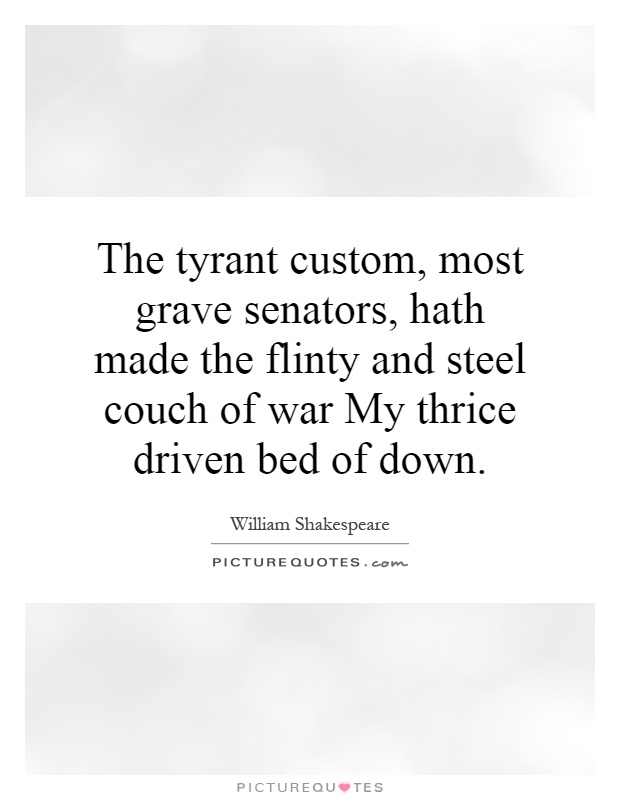The tyrant custom, most grave senators, hath made the flinty and steel couch of war My thrice driven bed of down

The tyrant custom, most grave senators, hath made the flinty and steel couch of war My thrice driven bed of down
In William Shakespeare's play "Coriolanus," the character of Coriolanus speaks these words to the Roman senators, expressing his frustration with the constant state of war that has become the norm in their society. The phrase "The tyrant custom, most grave senators, hath made the flinty and steel couch of war My thrice driven bed of down" is a powerful metaphor that conveys the idea of war being a harsh and unyielding reality that Coriolanus has become all too familiar with.The use of the word "tyrant" in this context suggests that Coriolanus sees the endless cycle of war as a form of oppression, imposed upon him and his fellow soldiers by those in power. The phrase "flinty and steel couch of war" paints a vivid picture of the harsh and unforgiving nature of battle, with the cold, hard materials symbolizing the brutality and violence that Coriolanus has experienced on the battlefield.
By describing war as his "thrice driven bed of down," Coriolanus is highlighting the paradoxical nature of his situation. While war is a brutal and unforgiving reality, it has also become a familiar and almost comfortable state for him. The repetition of the word "thrice" emphasizes the idea that Coriolanus has endured war multiple times, each experience shaping him and hardening him further.
These words also serve to highlight the toll that war takes on those who are forced to endure it. Coriolanus's use of the word "bed" suggests that war has become a constant presence in his life, something that he cannot escape from. The juxtaposition of the harsh materials of "flinty and steel" with the softness of "bed of down" creates a powerful image of the conflicting emotions that war evokes in him.
Overall, this phrase from "Coriolanus" captures the complex and contradictory feelings that war can evoke in those who are forced to participate in it. It serves as a poignant reminder of the human cost of conflict and the lasting impact it can have on those who are caught in its grip.












 Friendship Quotes
Friendship Quotes Love Quotes
Love Quotes Life Quotes
Life Quotes Funny Quotes
Funny Quotes Motivational Quotes
Motivational Quotes Inspirational Quotes
Inspirational Quotes